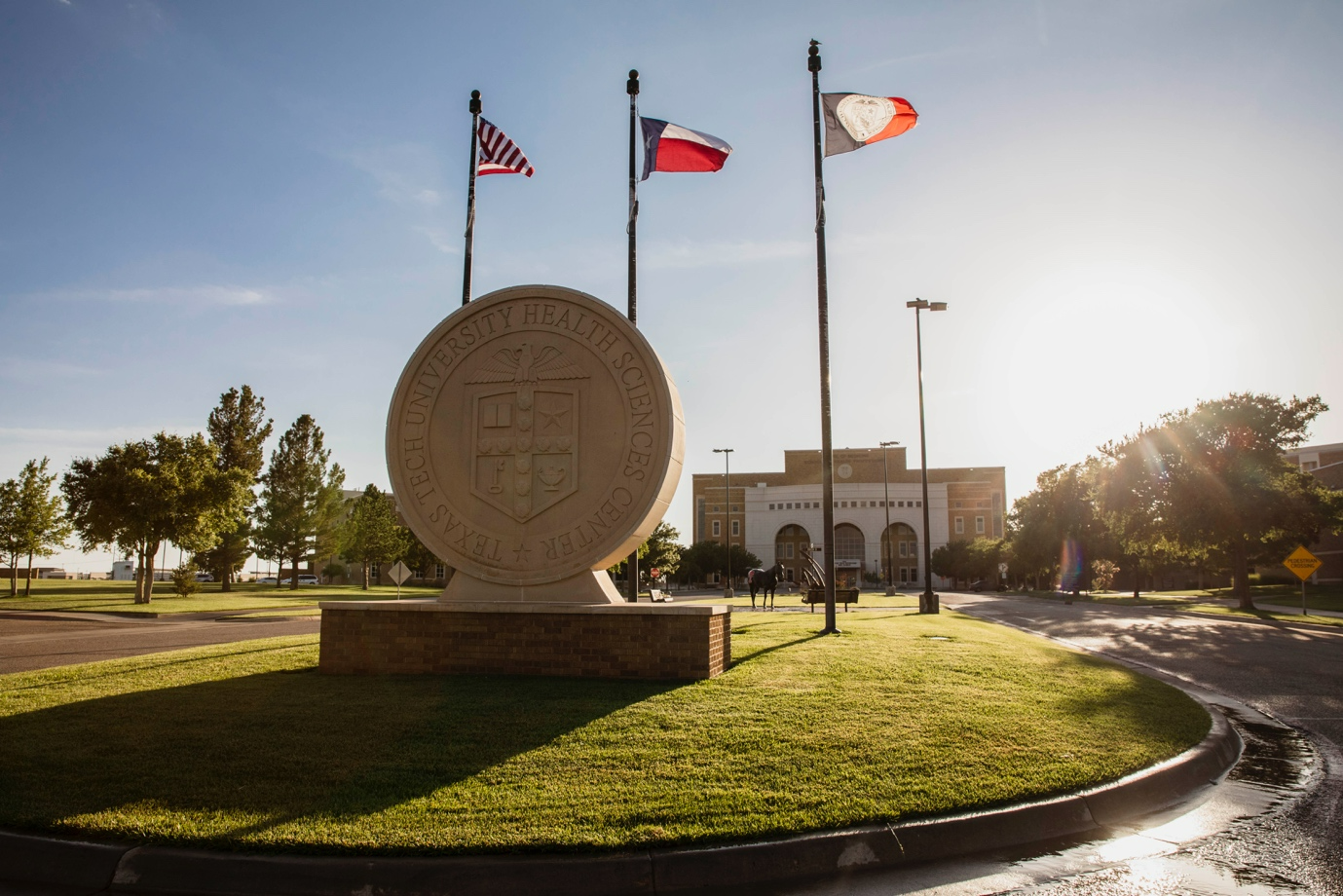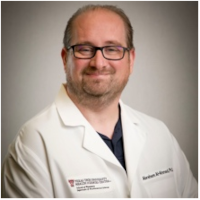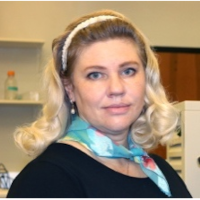Brain Drug Discovery Center

Brain Drug Discovery Center
The mission of the Brain Drug Discovery Center (BDDC) is devoted to finding new cures for a wide range of brain disease including stroke, Alzheimer’s disease, neuropathic pain, addiction, obesity and metastatic cancer by developing viable small molecule probes and preclinical drug candidates for researchers and clinicians of the Texas Tech System and beyond.
The BDDC aims to serve as a unifying mechanism to engage drug discovery efforts and works to generate, coordinate and facilitate multidisciplinary efforts in medicinal chemistry, pharmacology, drug delivery, formulation, and repurposing in effort to translate basic science at TTUHSC into therapeutic intervention for human and animal disease. Primarily based in the Department of Pharmaceutical Sciences in the Jerry H. Hodge School of Pharmacy, its main emphasis is on establishing a robust pipeline of projects with School of Pharmacy (SOP), School of Medicine (SOM), and School of Veterinary Medicine (SVM).
The BDDC will facilitate the generation of biologically active small molecules to engage a variety of protein targets. The BDDC is able to provide expert support in a breadth of brain disease areas. School of Pharmacy researchers specialize in brain drug delivery and understand how to model the blood-brain barrier for robust drug screening of neurotherapeutics. We plan to capitalize on this expertise and collaborate with other faculty interested in brain drug discovery.
The BDDC is developing strategies that reduce the time frame of new drug development, decrease costs, and improve success rates, building infrastructure, and solidifying current expertise to help remove obstacles in the process of bringing a new drug to market.

Tom Abbruscato, Ph.D.
Grover E. Murray Professor and Chair, Pharmaceutical Sciences
Focus of Research: Drug discovery strategies to offset metabolic degradation, utilize Blood-Brain Barrier transport system to gain CNS access, and target receptor systems optimally to offset pathophysiologic processes involved in stroke, pain, and nicotine exposure from tobacco and vaping products. The mechanisms by which the neurovascular unit responds to stroke with respect to transport protein expression, cell-cell interactions, and the transport of drugs, ions, and nutrients that are vital for brain recovery after stroke

Mahmoud Ahmed, Ph.D.
Assistant Professor, Pharmaceutical Sciences
Focus of Research: Reimagining a platform to introduce non-opioid based small molecules whether targeting the signaling cascades and/or metabolic microenvironment for peripheral neuropathic pain with less tolerance and lower adverse effects by bringing molecular modeling and structure-informed machine learning into the genomics era.

Abe Al-Ahmad, Ph.D.
Associate Professor, Pharmaceutical Sciences
Focus of Research: Modeling neurological diseases at the blood-brain barrier using patient-derived induced pluripotent stem cells. In particular, on the contribution of a dysfunctional glucose transporter 1 (GLUT1) in the disease progression of Alzheimer’s disease and in the GLUT1 Deficiency Syndrome (GLUT1DS).

Ulrich Bickel, M.D.
Professor, Pharmaceutical Sciences, and Associate Dean of Sciences
Focus of Research: Pharmacokinetic analysis of Blood-Brain Barrier permeability and changes induced by disease or drugs. The use of receptor mediated uptake mechanisms at the Blood-Brain Barrier for drug delivery.

Hiranmoy Das, Ph.D.
Professor, Pharmaceutical Sciences
Focus of Research: Defining the role of human dental pulp-derived stem cells in reducing the effects of cancer-associated ischemic stroke.

Nadia German, Ph.D.
Associate Professor and Director of Medicinal Chemistry, Pharmaceutical Sciences
Focus of Research: Early drug discovery for cancer and central nervous system disorders, integrating synthetic chemistry, in vitro models of biological activity, and pharmacokinetic profiling to identify promising therapeutic candidates. Using ex vivo methods to bridge the gap between in vitro findings and in vivo applications, enhancing the translational potential of novel drug candidates.

Lance McMahon, Ph.D.
SVPRI, TTUHSC, and Professor, Pharmaceutical Sciences
Focus of Research: Utilizing rodent operant behavioral models to study drug dependence, addiction, and pain associated with novel compounds.


Samuel Obeng, Ph.D.
Research Assistant Professor, Pharmaceutical Sciences
Focus of Research: Investigating the interactions between opioids like fentanyl and alpha 2 adrenergic agonists, and how to reverse overdose from xylazine-fentanyl combinations. The development of novel psychedelics and strategies to treat depression and substance use disorders.

Heidi Villalba, Ph.D.
Assistant Professor, Neurophysiology/Pharmaceutical Sciences (TTU School of Veterinary Medicine)
Focus of Research: Neuroscience, neuroprotective agents, brain cancer (such as glioblastomas) and sex differences.

Ming-Hai Wang, M.D., Ph.D.
Professor and Amarillo Area Foundation Endowed Chair, Pharmaceutical Sciences
Focus of Research: Cancer biology and immunology.

Jenny Wilkerson, Ph.D.
Assistant Professor, Pharmaceutical Sciences
Focus of Research: Using behavioral pharmacology and neuroscience approaches to examine novel therapeutics for pain and drug dependance/ addiction. Examining the role of sex hormones in the development, maintenance, and treatment of pathological pain.

Yong Zhang, M.D., Ph.D.
Research Instructor, Pharmaceutical Sciences
Focus of Research: Exploring time-dependent neuroprotective mechanisms following stroke onset and optimizing the therapeutic windows of potential agents for treatment after onset.
- Title: Establishment and application of a platform for the use of human induced pluripotent
stem cell-derived neurons for drug discovery and disease modelling approach.
- Investigators: Al-Ahmad PI, German Co-I, Fon Tacer Co-I
- Funding Agency: Brain Drug Discovery Center
- Description: Developing a technological platform by providing human induced pluripotent stem cell-derived neurons (iNeurons) for neurological disorders modeling and screening platform.
- Title: Secretome of dental pulp-derived stem cell-based therapy for cancer-associated
ischemic stroke
- Investigators: Das PI, Abbruscato Co-I
- Funding Agency: Brain Drug Discovery Center
- Description: Examining the therapeutic potential of DPSC-based regenerative therapy, this proposal seeks to uncover innovative treatments, that might improve neurological recovery and reduce stroke-related morbidity in patients including those affected with cancer.
- Title: Neurogenesis effects of a novel [bis(4-methoxyphenyl)] pentylpiperidinol analog
in in vitro and in vivo models of stroke.
- Investigators: German PI, Abbruscato Co-I
- Funding Agency: Brain Drug Discovery Center
- Description: Validating the efficacy of our analog in in vitro and in vivo models of stroke, preparing this molecule for the preclinical studies.
- Title: Novel dual-acting compounds for treating stimulant use disorders
- Investigators: Obeng PI, German Co-I
- Funding Agency: Brain Drug Discovery Center
- Description: Investigating if atypical DAT and sEH inhibitors can alleviate symptoms of stimulant dependence and slow the progression of neurological diseases by reducing the underlying neuroinflammation resulting from the modulation of dopaminergic pathways and the accumulation of epoxy fatty acids
- Title: Pharmacological Metabolic Reprogramming in Glioblastoma
- Investigators: Villalba PI, Ahmed Co-I, Bickel Co-I
- Funding Agency: Brain Drug Discovery Center
- Description: Elucidating the molecular mechanism in altering FA metabolism by which our lead MCD inhibitor induces cell death of glial cancer cells in vitro and halts tumor progression.
- Coming Soon
Molecular Modeling Core: This core is equipped with state-of-the-art software for modeling binding of synthetic ligands to disease-relevant proteins. Allowing for virtual high-throughput screening (HTS) of small molecule compound libraries to facilitate rapid identification of hit compounds and reduced cost and time as compared to real-world screening with HTS equipment.
Synthetic Chemistry Core: Equipped with modern synthetic chemistry facilities including a barcoding system to label compounds and robust sample tracking. Automated flash column chromatography coupled with atmospheric pressure chemical ionization (APCI) MS allowing for rapid purification and characterization of newly synthesized chemical entities when combined with NMR.
Nuclear Magnetic Resonance (NMR) Core: Equipped with a Bruker 400MHZ NMR spectrometer. This core is critical for medicinal chemistry research and is used by numerous researchers for diverse projects including the characterizing compound brain penetration, synthesis of liposomes for drug delivery, and polymer synthesis.
400Mhz Bruker NMR Spectrometer
AB Sciex QTrap 5500 mass spectrometer
Shimadzu NEXERA UHPLC
LC-MS/MS QTrap 7500
Varian LC/MS/MS with ProStar HPLC
Teledyne Combiflash RF
Waters Acquity H-Class UPLC System
Shimadzu Nexera UHPLC System
Eksigent exspert nano-LC/micro-LC System
Sciex QTRAP 6500+
Sciex QTrap 5500
Sciex TripleTOF 5600
Sciex SelexION
Agilent ICP-MS System
Labconco Centri/Vap with Coldtrap
Pharsigh WinNolin PkPd Modeling Software
TTUHSC is also home to the Clinical Pharmacology & Experimental Therapeutics Center in Dallas which provides pharmaceutical expertise to conduct and support preclinical and clinical/translation trials, and postmarketing assessment of pharmaceutical drugs.
The Brain Drug Discovery Center (BDDC) emerged in 2024 from combining the Center for Blood-Brain Barrier Research and Cancer Biology Research Center, building on the long-standing expertise in blood-brain barrier with new talent and expertise in brain drug discovery.
Center Contact Information
Phone: 806.414.9289
email: Thomas.Abbruscato@ttuhsc.edu
Address: 1400 S. Coulter Street, Amarillo, TX 79106
